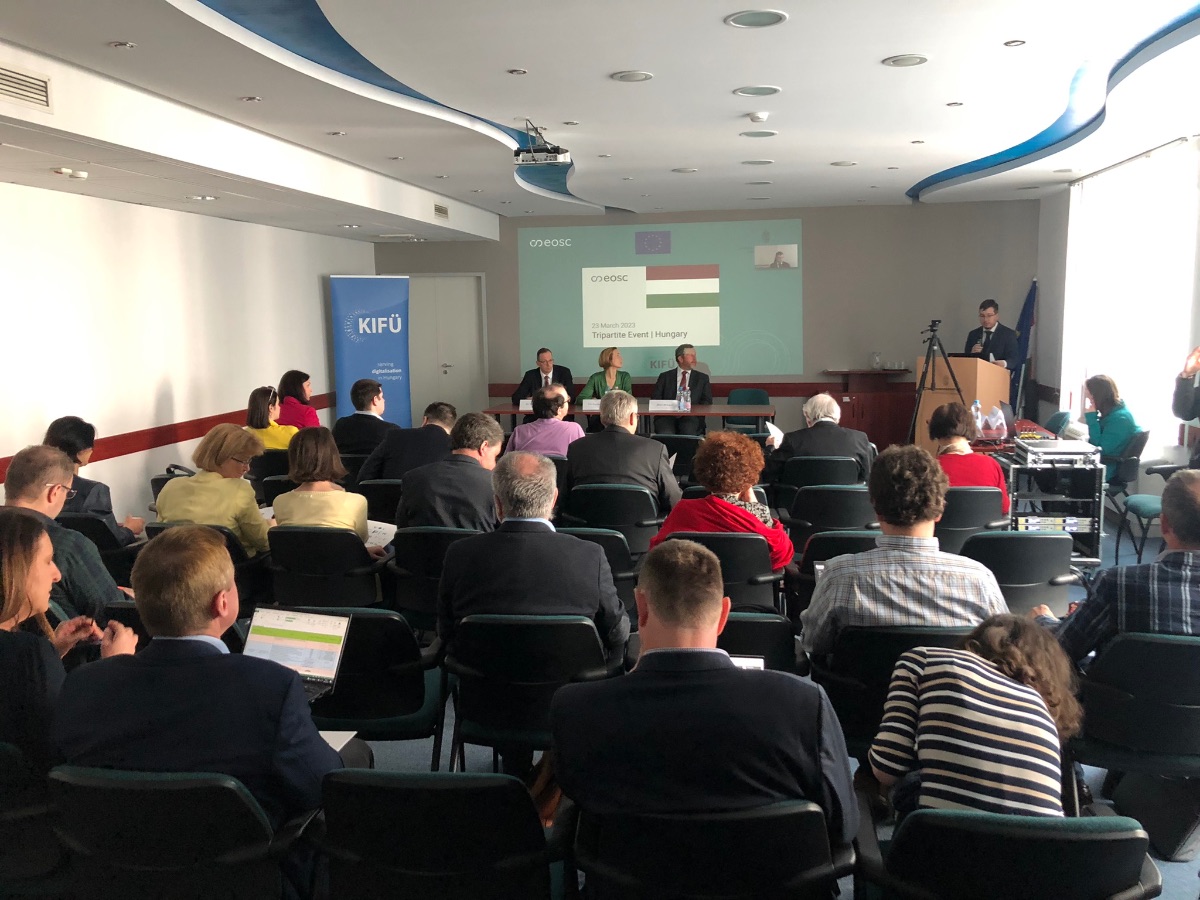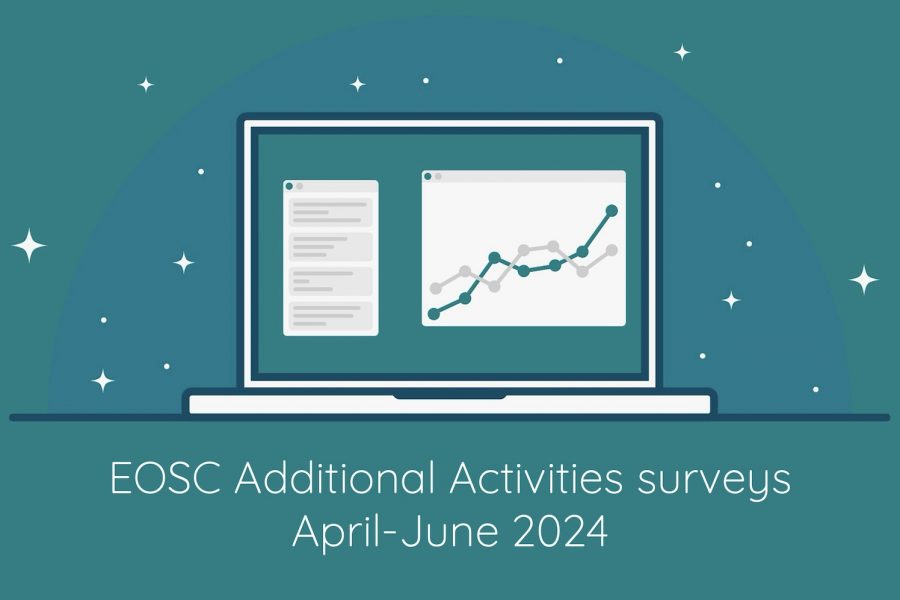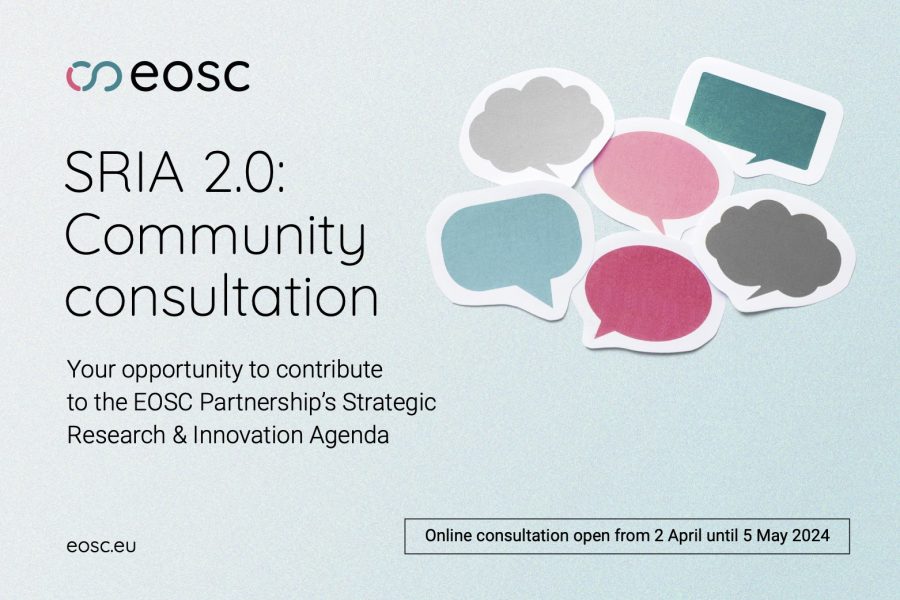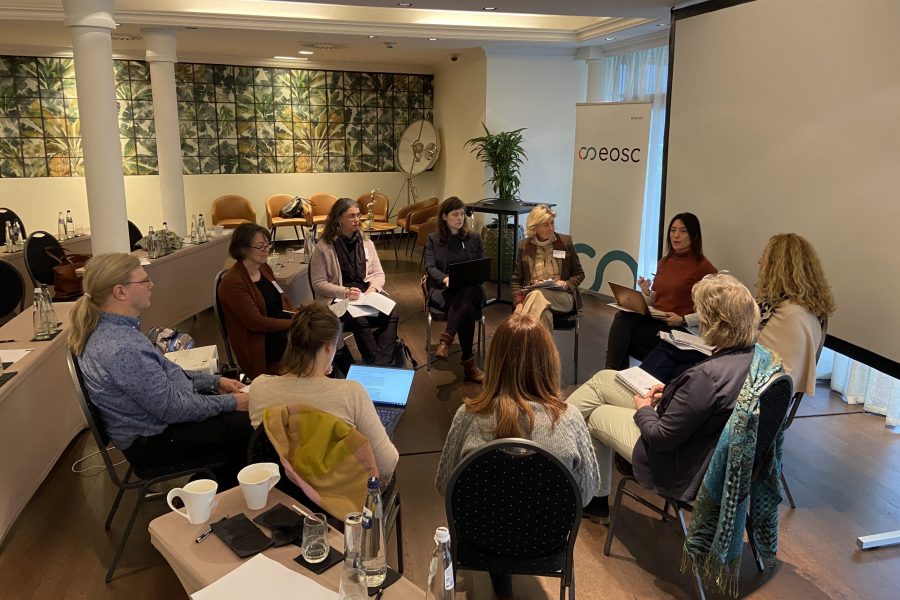The EOSC Partnership (EOSC Association, European Commission, and EOSC Steering Board) gathered on Thursday 23 March to meet Hungary’s Open Science (OS) community at the first Hungarian National Tripartite Event (NTE). Organised in hybrid format, with a number of attendees gathering at the premises of the National Research, Development and Innovation Office (NRDIO), the event provided insights on the status and future perspectives of OS in Hungary and in Europe. Hungary’s NTE is expected to set the ground for a closer engagement of the Partnership with OS stakeholders in the Hungarian landscape.
In the morning session, we gained first-hand knowledge of the status of OS in Hungary from the main research funding agency, NRDIO, and the Governmental Agency for IT Development (KIFÜ), the main operator of IT infrastructures and services for research in Hungary. István Szabó, the vice president of NRDIO summarised the research supporting policy of Hungary and wished for EU funding to “turn East”, if MS in Central and Eastern Europe MS (“EU-13”) are to catch up in R&D and OS indicators with Western EU countries. Hungary’s good progress in opening research data obtained with public funds fits well with the vision represented in the “Position Paper on Open Science”, initiated by NRDIO and supported by most of the relevant actors in the OS community. János Mohácsi from KIFÜ, EOSC-A Mandated Organisation, stressed the KIFÜ mandated organisation role as organiser of Hungarian OS Forums and disseminators of information about Open Science and EOSC and facilitator for Hungarian organisations to join European initiatives, including those in which EOSC-A takes part.
An overview of the EOSC Partnership was provided by Pantelis Tziveloglou from the Open Science Unit of DG RTD of the European Commission, Ute Gunsenheimer, Secretary General of the EOSC Association, and Volker Beckmann as co-chair of the EOSC Steering Board. The EC has shown its commitment towards OS through various funding streams and policies, but EOSC will only be possible with the participation of the wider community (represented by EOSC-A) and the backing of the EU Member States through the EOSC SB: EOSC is a collective effort that requires top-down approaches to remove barriers (i.e. EU and national policies) as well as bottom-up initiatives; through EOSC-A, Hungarian OS stakeholders have the chance to contribute to the design of coming funding calls in Horizon Europe, including some with specific target in EU-13 countries.

The panels in the afternoon discussed the role of research infrastructures (RIs) in supporting OS and the perspectives from Hungarian funders and research institutes, respectively. RIs, known to be a crucial ingredient for OS, were represented by Allen Weeks (Extreme Light Infrastructure, ELI), Gábor Palkó (Digital Humanities Laboratory), Judit Fazekas-Paragh (Debrecen University and National Library and OpenAIRE), Robert Lovas (Eötvös Lóránd Research Network), and Miklós Bán (OpenBioMaps). The positive effect of the Position Paper was highlighted by all panellists; however, more direct engagement with researchers is required to better address their needs and concerns towards OS. If researchers perceive OS more as a burden than as an opportunity to be embraced, it will lead to their frustration towards funders and publishers. Better assessment of those scientists either currently embarked on, or planning to adopt, OS practices, should be a priority. RIs on their part must realise that to contribute to management of research data requires the allocation of appropriate funding from their budget—something that needs to be discussed and agreed with funders.
Programme and presentations can be found on the Hungarian country page
The funders’ view on implementation of OS was discussed by Mr Tziveloglou, Imola Wilhelm from Hungarian Young Academy (FKA/HYA) and Dóra Gaálné Kalydy (Library and Information Centre of the Hungarian Academy of Sciences, MTA). Prompted by the question from moderator Ms Gunsenheimer’s, panellists pondered on how to design a “stick and carrot” approach that effectively attracts researchers to join OS: funders must provide them with good information about funding opportunities and support for researchers adopting OS must be accompanied by staff (technical and otherwise) with the right skills, which can only be provided by the right training programmes. Realisation that OS is a collective community-driven effort also (or especially) at national level can lead to better engagement with researchers. Publishing continues to be a controversial topic for researchers: it is of their highest priority to pursue their careers, due to institutional and funding requirements, current configurations of Open Access (at least some of them) are not helping to spread the adoption of Open Science by many. The EC is contributing here through ORE which gives control of publishing back to the community, but further advances are needed, and maybe EOSC can help in this respect. Better alignment between European and Hungarian science systems is at any rate necessary advance in all levels.





